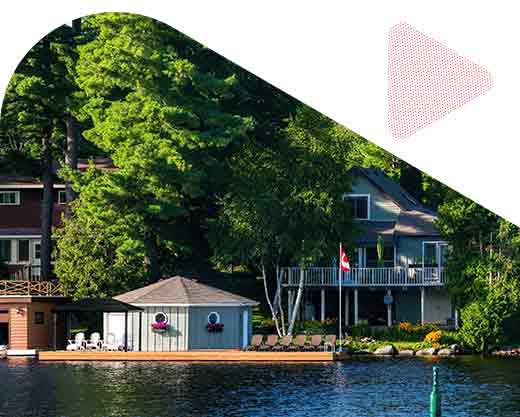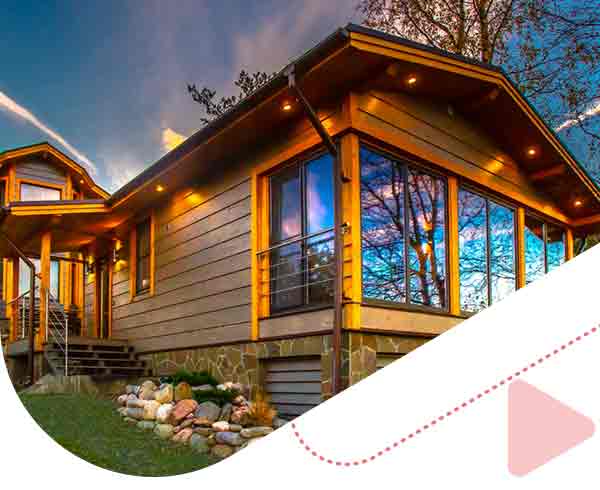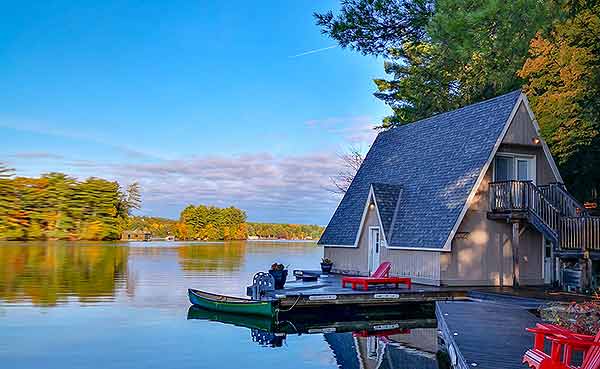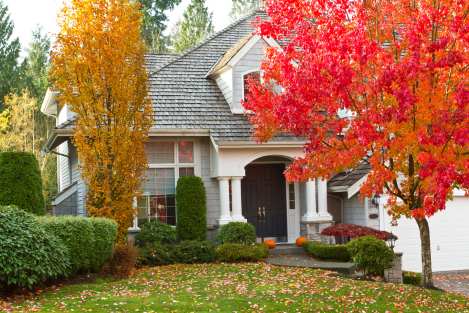What is cottage insurance?
Cottage insurance is designed specifically for vacation properties like cabins or cottages. It provides you with coverage for your vacation home and insures it against common threats for this type of property. It applies to the following types of dwellings:
- Cottage
- Island cottage
- Lakehouse
- Cabin
- Ski chalets
- Chalets
- Lodge
- Seasonal property
- Vacation home or condo insurance
You can have your cottage added as a secondary property on your homeowners policy. Cottage insurance provides you with the same types of protection as home insurance in Ontario. You have coverage for your dwelling, property, personal belongings, and liability protection.
Back to table of contents
Who needs cottage insurance?
It's recommended that anyone who owns a cottage should have insurance. If you don't own your cottage outright, you’ll need proof of insurance to qualify for a mortgage from your lender.
Approximately 7% of Canadians own a vacation home. 26% of these are owned by families with children. Most people have the vision of passing down the family cottage for generations. To do this, owners need to protect their vacation property with a good policy.
Many cottages are owned by families. In situations where more than one person is listed on the cottage ownership, it's recommended that they also be listed on the cottage insurance policy. This ensures that all owners have financial protection.
Back to table of contents
How much is cottage insurance in Ontario?
Cottage insurance costs can range from as little as $800 to $3,000 or more per year in Ontario. The price depends on a variety of factors related to your seasonal property. The size of the land, location, features, amenities, if you lease it out, and other things will affect how much you pay.
Comparing quotes allows you to assess your options and choose the best protection based on your specific requirements. Whether you’ve just purchased a cottage or it's time to renew your coverage, our brokers can help. Give us a call to explore your options and maximize your savings.
Back to table of contents
What does cottage insurance cover?
![Cottage and boat house dock on the water]()
A cottage insurance policy protects you from standard perils. You are covered for things like fire, theft, weather-related damage, and falling objects. Your plan type determines what is included.
There are two main types available. They are:
- Comprehensive: Comprehensive home insurance covers your building, structures on the land, and contents for all threats unless they are excluded. You’ll have protection for things like sheds, boathouses, decks, landscaping, tree houses, outbuildings, and equipment. It may also include recreational items such as kayaks, canoes, and jet skis. You’ll have coverage all year, even in the off-season.
- Named perils: Named perils home insurance is a broad type of coverage that only protects you from things specifically mentioned in your plan. It protects your cottage and belongings within. Coverage is seasonal but you have options to expand your protection.
Back to table of contents












